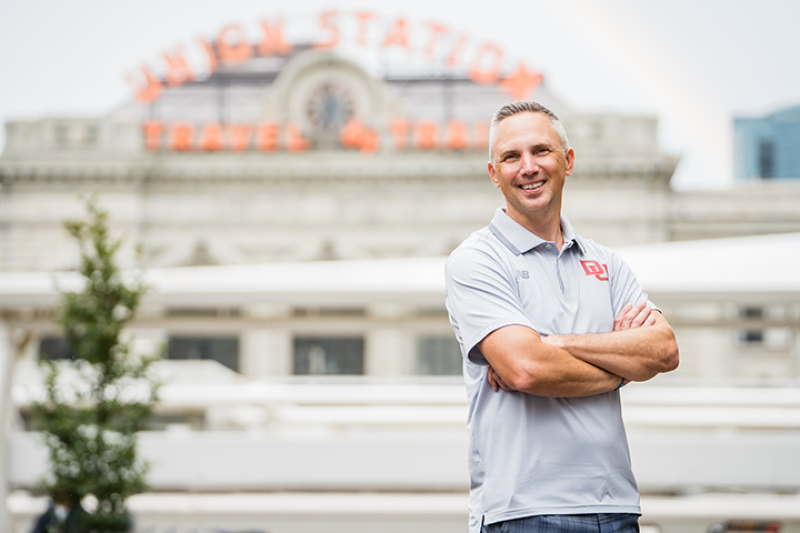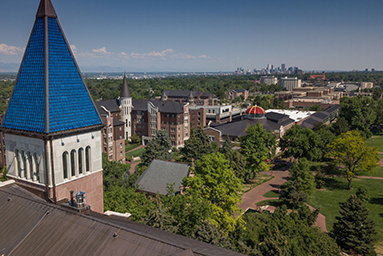Adversity Leads to New Opportunities for DU Graduate

Doug Busken applied to the University of Denver after receiving some tough news. He was being laid off from his job in a field where he had spent 18 years of his life working. At first, it seemed like a defeat, but then Busken took a closer look at the possibilities in his shifting future and thought, “What better time could there be to pursue my passion?”
He was beginning to realize how much he enjoyed coaching his kids’ middle school lacrosse and cross country teams. So, after nearly two decades working in finance, he chose to move in a decidedly different direction. “If you're going to do something, why not try to be the best at it,” says Busken, who is graduating from DU’s Graduate School of Professional Psychology (GSPP) with a Master of Arts in Sport Coaching (MASC).
Busken felt a little wary returning to school after so long but quickly found inspiration in the online program.
“What kept me going was seeing the difference I could make and the relationships I could build,” Busken says. “I was not just helping athletes become better in their sport but facilitating personal enrichment to improve every aspect of their lives.”
He was taking steps to improve his own life at the same time. He founded Arete Sport, which offers personalized triathlon and lacrosse training services, and built a business philosophy and model with tools he was mastering at DU. Arete (ah-reh-'tay) is a Greek word, defined on Busken’s website as “the act of living up to one’s full potential.”
“With the right mindset and the right nutrition, anyone can be an athlete,” says Busken, who has competed in five Iron Man triathlons. His advice? Start with the belief you can do it, and then focus on your goals. Maximizing your potential is about being the best you can be, not your position on the podium.
While studying at DU, Busken also began working as a diversity, equity and inclusion (DEI) action researcher on behalf of the National Strength and Conditioning Association Foundation (NSCA).
Busken says that 70% of the strength and conditioning coaches in the NCAA are white, something that he says needs to change. Busken plans to tackle DEI from every direction and believes progress can be made by working one-on-one with athletes as well as by collaborating with leaders in the field. “After all the things we have done and all the social changes we have made,” he says, “we still have this huge void.”
Busken will continue to work with the NSCA Foundation to close gaps in sports coaching accessibility for marginalized people. “Let me be the accomplice, ally and advocate that continues to bring these issues to light,” Busken says. This summer, he will attend the NSCA annual conference for the first time to present the findings from the DEI work he has done with their grant applicants—“to see where we are putting our dollars and where we can begin to make change,” he says.
He is excited to continue growing his coaching business and seek out opportunities to help athletes succeed in their goals. “Even if my business never takes off, I have a piece of my life through this program and through my coaching that makes me feel whole,” Busken says. “It is never too late to make a change.”


